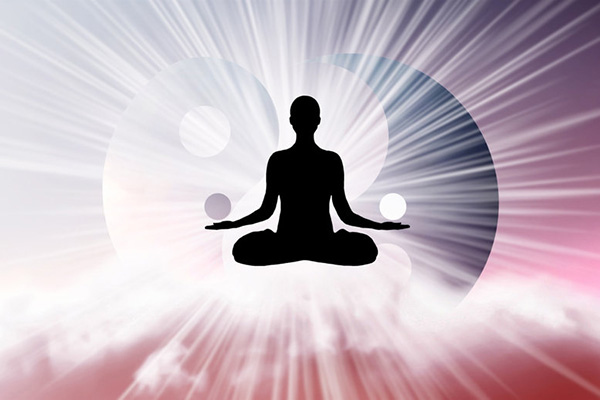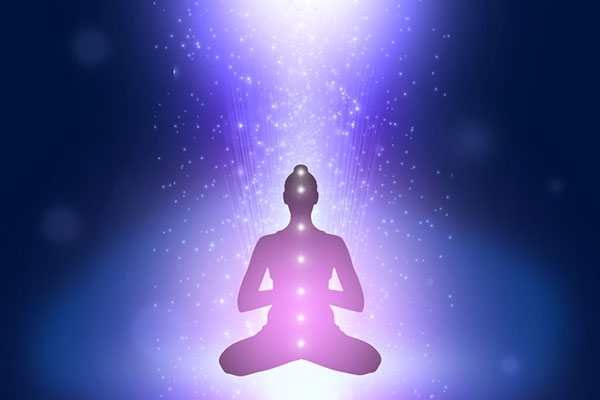forgiveness
Stay True To Your Own Best Karma
 You may have heard of someone ‘getting their karma’ for something bad they have done, or of wishing bad karma on another for their transgressions. Most people use the word ‘karma’ in this negative sense, usually believing that a person that hurt them will be on the receiving end of the same hurt (or worse) because of their deeds.
You may have heard of someone ‘getting their karma’ for something bad they have done, or of wishing bad karma on another for their transgressions. Most people use the word ‘karma’ in this negative sense, usually believing that a person that hurt them will be on the receiving end of the same hurt (or worse) because of their deeds.
But wishing negative karma on another is a dangerous practice. What we think, say and do tend to come back to us, instead of another person. So, when you say something like, “Oh, I can’t wait until they get their karma and someone breaks their heart like they broke mine,” you have in fact declared it for yourself (again).
Karma happens when it happens. Never, ever wish it on another in a negative manner. Your thoughts, words and actions determine what you attract to yourself.
Karma can instead be invoked in an amazingly positive way. Wish everyone good things, positive actions, and uplifting results in their life – even those who wronged you.
Congratulate that person who got the promotion that you wanted. Offer the person who stole from you a blessing. Forgive the person who broke your heart and wish them only happiness in their future life.
This will open the flood gates of good reactions to your actions. There is a cause and effect for everything, so the moment you choose to you’re your thoughts, words and actions all positive and loving, that is what you will attract in return.
Conscious Conflict Resolution
 Dealing with tension and conflict is one of the most challenging dynamics in friendships and relationships. We have all found ourselves in a shouting match with someone we love, or concluding an argument feeling awful and unresolved.
Dealing with tension and conflict is one of the most challenging dynamics in friendships and relationships. We have all found ourselves in a shouting match with someone we love, or concluding an argument feeling awful and unresolved.
Getting to the root of an issue without all the drama sometimes feels impossible. But conflict resolution is a skill, and one that can be honed with practice and patience.
The following strategies are helpful in shifting from overreaction to consciously seeking resolution when faced with difficult conversations or conflict scenarios.
Pause For Self-Awareness
Pause and identify what you are feeling. Step back from the feeling and merely observe it, as well as any thoughts that come along with the feeling.
Recognize that ‘you’ are not the feeling; it is a simply a sensation you are experiencing. Often people will say they are ‘angry,’ but words are powerful and this indicates that you have identified with the anger. You are actually saying: ‘I am anger.’
Do not choose to ‘be anger.’ You are merely experiencing anger. Shifting this mindset can help to separate your rational mind, from the emotional sensation of anger (or hurt, or whatever feeling you may be experiencing).
Once you are able to observe your emotions and thoughts in this way, it becomes much easier to avoid reacting from them. By not reacting, you give yourself the opportunity to think about your response first, and consciously choose your course of action.
Free Your Soul From Toxic Negativity
 It is usually advisable to get over it and move on. When we continue to vent about people or things that annoy or frustrate us, or when we cannot forgive someone who has wronged us, and we go on, and on, and on about it, we are affirming the negative and attracting more of the same energy into our life.
It is usually advisable to get over it and move on. When we continue to vent about people or things that annoy or frustrate us, or when we cannot forgive someone who has wronged us, and we go on, and on, and on about it, we are affirming the negative and attracting more of the same energy into our life.
Revenge or vitriol does absolutely no harm to another person, only to the person pursuing it. Anger or hatred does not affect the other person, only the person sending it out. What comes from your own spirit, your thoughts, words, actions, is what you will create in your own life. You are hurting or changing no one with your negative feelings other than yourself.
That person who hurt you has moved on with their life. In fact, they might even be living their best life, while you are still stuck and stagnant in the pain and misery of the past. It only becomes baggage that carries forward into the now, and into the future.
I once had a client who obsessively held onto anger, hatred, spite, and revenge towards her ex for over a decade. She could not figure out why every new relationship and project in her life since then failed miserably, usually with almost the same endings.
Finally, after years of struggling to bring her different insights, she was able to look at the person who hurt her, release his memory with loving, forgiving energy, and let the whole thing go. Then, as I had predicted, the next person who came into her life was everything she had always wanted in a partner!
In fact, her new beloved was far better than anything she ever had with Mr. Most Hated, before it went wrong, and had she continued on her path of anger and toxic baggage carrying, this new love miracle would most likely never have happened.
How To Maintain A Healthy Aura
 The aura is an emanation surrounding the body of a living creature; it is viewed as the essence of the individual and discernible by people with special sensibilities. Although most children can see them, it’s getting them to tell you what they see that’s the problem, especially, if they don’t know their colors.
The aura is an emanation surrounding the body of a living creature; it is viewed as the essence of the individual and discernible by people with special sensibilities. Although most children can see them, it’s getting them to tell you what they see that’s the problem, especially, if they don’t know their colors.
Auras have a spectrum of colors that can be photographed with special equipment. Most people believe that auras are intangible. They don’t realize that the health of one’s aura can easily be monitored and sustained healthily. Just as one monitors your blood pressure or insulin levels. Even though you can’t see your aura doesn’t mean it isn’t there. We can’t see radio waves or x-rays, yet we still know they exist. If you want to monitor the health of your aura you must rely on an aura reading by someone capable of seeing them. Fortunately, there are techniques we can use to maintain a healthy aura.
It is a misconception to think that an extended aura is a good thing. An overextended aura brings about many health problems. Aches, pains, insomnia to name a few. An overextended aura also can leave one vulnerable to negative energies. I was always taught that when someone drinks or uses drugs, it in a sense, blows big holes in ones aura. This allows these negative forces to attach themselves to you and work through you.
Have you ever lived with an alcoholic? Or know someone who is a drug addict? Have you ever noticed how they change when they are drinking or drunk? Certain drugs and alcohol lowers the inhibitions. Thus, allowing such entities to take control. Ever notice, when someone is under the influence, their voice changes and often times, so does the color of their eyes. They become violent or abusive. They may become promiscuous, while normally they are more reserved.
Saying ‘I’m Sorry’
 I had a conversation not too long ago with friends about the increasing breakdown in civility, courtesy, and decency in society. The lack of good manners creates isolation, loneliness and a feeling of not being cared for.
I had a conversation not too long ago with friends about the increasing breakdown in civility, courtesy, and decency in society. The lack of good manners creates isolation, loneliness and a feeling of not being cared for.
I have noticed these days when you tell others you are not doing well or going through a hard time, the other person often doesn’t seem to know how to respond. You’re lucky if you get at least a blank stare! This is not how grew up. There were a few ‘odd’ people in the old days who seemed stoic or lacking in empathy – but they stuck out! Now it seems to be the norm.
I saw a post on social media recently stating that we should stop saying ‘I’m sorry’ for everything. Instead, for example, if you are late, one should say ‘thank you for waiting for me.’ I feel this ill-conceived idea is a reflection of the social issues we face as a society today.
If someone was late and didn’t say sorry (which happens often to me) I would be even more annoyed. Words are powerful. A sincere apology (and forgiveness) has tremendous power.
The idea that no apology is needed when you are late is very narcissistic in my opinion. Life is not always about us, or what suits us, because in this world what is best for others is in fact also what is best for us. Selfish, cruel, mean people end up being miserable. Generous, well-mannered, kind-hearted people are blessed.
The concept here is apparently that by offering a sincere apology you are being submissive or bowing down to someone else by degrading yourself. Well, that is simply bizarre. An apology is a way of honoring the other person and keeping your dignity?
We all make mistakes. I am usually on time, but I have been late a few times in my life. Honor and dignity are not objects of pride; they are objects of humility, compassion, and respect for others.
The True Meaning Of Inner Peace
 What does the word ‘peace’ mean to you? Well, the true meaning of this word came to me recently in an unusual way, while I was doing a psychic reading.
What does the word ‘peace’ mean to you? Well, the true meaning of this word came to me recently in an unusual way, while I was doing a psychic reading.
The client I was reading for told me at one point in our conversation that he was finally “at peace.” All of a sudden, I felt as if I was sucked into a time warp. When he said the word peace in that context, it was like my own past went into this time machine and emerged in the present. It felt to me as if spirit was using this client’s words to get my attention about my own personal life.
In recent years things have been difficult in my own family life, especially around Christmas, because I have not seen my son in many years. It has been challenging for me and everyone around me.
I made the classic mistake. We tend to think that if we focus very hard on avoiding something negative, we might block it or prevent it from entering our life. We believe this is the best way to control the outcome of what could happen to us in the future. Ironically, this is often the reason why we attract more negative things into our lives.
We also tend to think that ‘being at peace’ only means to eliminate and overcome stress in our lives. Or we think it merely helps us to sleep better. I have always known that if I try to live in a more a stress-free world in my own mind, I would feel better about my life in general. But I never considered peace to be a tool to use for finding a better way to deal with not seeing my son.
In life we have many potholes to avoid and many mountains to climb, and if we look to truly have peace in our life we need to come to place of deeper acceptance and letting go, instead of merely trying to be stress-free. True inner peace is a powerful medicine that everyone can use every day.
